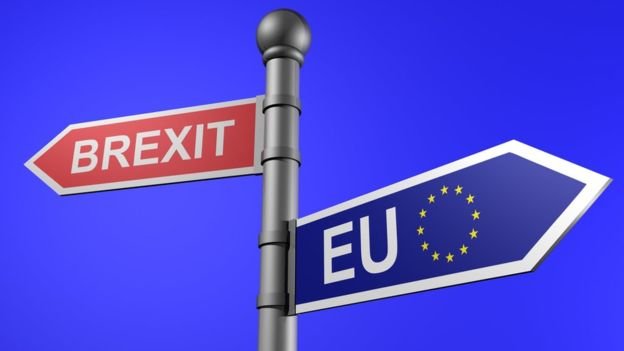The United Kingdom’s referendum vote to leave the European Union occurred half a world away, but the long-term implications on Utah-based companies could be consequential.
The United Kingdom’s referendum vote to leave the European Union occurred half a world away, but the long-term implications on Utah-based companies could be consequential.
Or not.
Indeed, a panel meeting in Salt Lake City recently to discuss the “Brexit” by the U.K. indicated that for Utah exporters and Utah-based companies with operations in Europe, the impact of the vote could be encapsulated in one word: uncertainty.
“It’s going to be a great opportunity to see what kind of agreements the U.K. will be able to negotiate with the rest of Europe, with the United States and with other countries, and whether those will be in line with the agreements there are currently in place,” Barbara Bagnasacco, a lawyer at Kirton McConkie, said at the event, organized by the World Trade Center of Utah.
While panelists said immigration, and not economics, was the driving factor in the vote, the U.K. and EU will have two years to agree on the terms of their split, with the beginning perhaps next year. However, some officials have speculated that it could take several more years for the exit negotiations to be complete. Until then, EU treaties and laws still stand in the U.K.
“This is really, truly a remarkable event — something that is shaking the investor markets, it’s shaking investor confidence,” Lina Svedin, political science professor at the University of Utah, said of the vote.
“In hindsight, I think we took for granted it wasn’t going to be that big a deal,” said Paul Campbell, president of Campbell Scientific Inc., a Logan-based manufacturer of monitoring and control instruments. “Well, it was.”
In the short term, the vote has dropped in the value of the British pound, making U.S. exports more expensive in the U.K., he said. Still, about 60 percent of his company’s European sales are in euros. “I’m guessing that that’s going to be typical of a lot of U.K.-based companies that are trading with Europe, where there will be more of their sales that are based in euros than in pounds sterling, so that helps mitigate that immediate impact on business,” he said.
Less tangible is U.K.’s “emotional pullback” from the rest of Europe. “I think we can anticipate that it will take some time to redefine the relationship,” Campbell said. Franz Kolb, the panel moderator and director of diplomacy and protocol in the international trade section of the Governor’s Office of Economic Development, said significant anti-U.K. sentiment exists in Europe.
That relationship redefinition, panelists agreed, will be forged in the new agreements between the U.K. and other countries.
“From a legal perspective, this is the first time that a member state vocalizes discontent through a referendum, and this will represent an interesting period of transition of two years of negotiation where the treaties will continue to apply. So it will be business as usual for U.K. companies and for U.S. companies that have a presence in the U.K.,” Bagnasacco said.
“I think there will be very important consequences [in the long term]. In the meantime, I think it’s business as usual in the sense that agreements are still in place and the free flow of investments is still in place, but I think that it’s going to be very important to plan for two or three years from now in terms of looking very closely at how that agreement is negotiated with Europe.”
Campbell said his company has a subsidiary in the U.K. that supports Campbell Scientific operations in France, Germany and Spain.
“The big question in my mind, in the big picture with the Brexit vote from a business perspective, is, will this change the equation in terms of where a U.S.-headquartered company is going to base its operations for serving the European market as a whole?” Campbell asked. “And I see a lot of other American businessmen, a lot of other American businesses, that I think are faced with a similar question, which I think will take some time to unfold.”
Campbell said he was optimistic following a recent subsidiary board meeting when he discussed the vote with the other directors, all Brits.
“I believe that in the long term, they are committed to a continuation of an open trade relationship with Europe. They want to see that continue. I think they’re all sort of feeling that the British wanted a little more sovereignty than they were getting with the relationship as it has been defined and recognize that they face now a redefinition of that relationship,” he said.
The U.K. has retained government institutions that will help them through the process, he added. “I’m optimistic, I’m supportive of what I hope will be a positive outcome,” he said. As for U.S. direct investment in the U.K., the U.K. has “incredible people, incredible human resources and a great business culture,” he said. “Those, I think, are long-term strengths.”
Until the new agreements are in place, uncertainty will rule, but it will disappear with the new agreements, Bagnasacco said.
“The rules will be very clear about where Britain stands in this with regards to the European Union, but until that negotiation is done, there will still be considerable uncertainty that the markets are going to react to,” she said. “But just remember that they’re very big on rules, so it will be very clear once they have made an agreement.”








